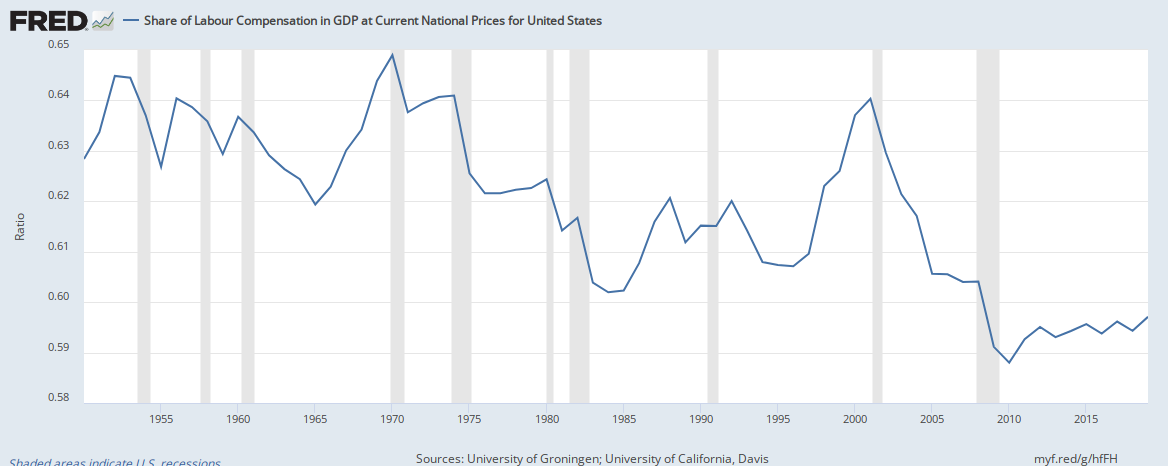It's a good point. There's no way to determine it, really. Something to look at:
There's no law saying that workers collectively are entitled to their historical average share of the economy, but A) the change is clearly a result of changes to the system rather than workers being shittier/landlords and other capital owners being better and B) most of us probably think that the change is undesirable.
I'd also say that the evidence suggests that workers are overpaid. If they're just getting compensated for their value, a factory closing or workers otherwise losing their job should be no problem. But clearly, it's a huge problem. Doesn't mean that they're overpaid *relative* to owners, though. What's happening is that the country as a whole is adding wealth (physical and idea-based), which interacts with labor to produce more value, but an increasingly large percentage of that added value is going to capital owners (and a surprisingly large portion of that is simple landowners). That's why I think we should have an SWF, a national land-value tax, higher inheritances taxes, and higher taxes on capital gains.




